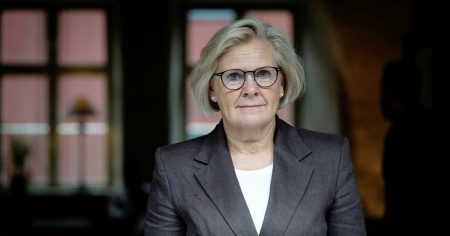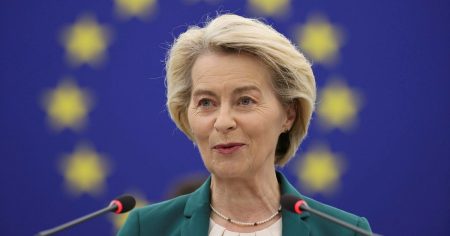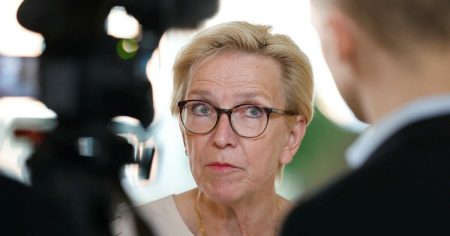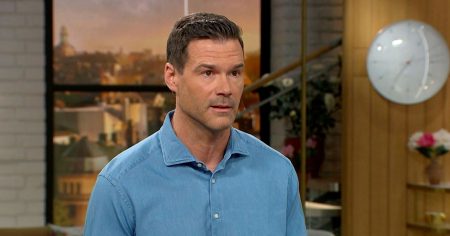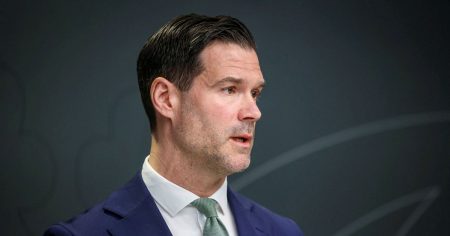The leadership of Muharrem Demirok, the head of Sweden’s Center Party, has been thrown into serious question following a dramatic call for his resignation by the party’s youth wing, the Center Party Youth League (CUF). This unprecedented demand, issued late Thursday evening, has sent shockwaves through the party and exposed deep internal divisions. CUF’s top representative, Caroline von Seth, cited a ”lack of trust, deficient leadership, and a low tolerance for dissent within the party” as the primary reasons behind their call for Demirok’s departure. This bold move has ignited a firestorm of controversy, with several district branches expressing outrage and dismay at the youth wing’s actions.
The CUF’s accusations paint a picture of a party struggling under Demirok’s leadership. The claim of ”low tolerance for dissent” suggests an environment where open discussion and critical feedback are stifled, hindering the party’s ability to adapt and evolve. This, coupled with the alleged ”lack of trust” and ”deficient leadership,” points to a broader crisis of confidence in Demirok’s ability to effectively guide the Center Party. The timing of this public denouncement is particularly significant, coming just months after Demirok assumed leadership, indicating a rapid deterioration in the relationship between the party’s established leadership and its younger generation. Von Seth’s statement underscores the gravity of the situation, highlighting what the CUF perceives as fundamental flaws in Demirok’s leadership style and his management of the party.
While the CUF’s statement presents a damning indictment of Demirok’s leadership, the situation is far from clear-cut. The youth wing itself appears to be divided on the issue, with reports suggesting that the decision to call for Demirok’s resignation was not unanimously supported. This internal discord within the CUF weakens their position and raises questions about the overall level of support for their drastic action. Furthermore, the strong backlash from several district branches suggests that the demand for Demirok’s resignation does not represent the sentiment of the entire party. These dissenting voices within the Center Party are likely to rally around Demirok, potentially leading to a protracted internal power struggle.
The conflicting narratives emerging from within the Center Party paint a picture of a party in turmoil. The CUF’s accusations, even if not universally supported, have undoubtedly damaged Demirok’s standing and created a significant challenge to his authority. He now faces the daunting task of rebuilding trust, not only with the youth wing but also with those district branches who have expressed their displeasure at the CUF’s intervention. The future of the Center Party hinges on its ability to navigate this internal crisis and emerge unified. Failure to do so could have significant repercussions for the party’s electoral prospects and its overall influence on the Swedish political landscape.
This internal conflict also exposes deeper ideological fault lines within the Center Party. Historically, the party has occupied a centrist position in Swedish politics, advocating for a blend of liberal economic policies and social progressivism. However, in recent years, the party has grappled with its ideological identity, particularly in the context of a rapidly changing political landscape. The rise of populist and nationalist movements has forced the Center Party, like many other centrist parties across Europe, to re-evaluate its position and consider new alliances. This internal struggle over the party’s future direction is likely playing a role in the current leadership crisis, as different factions within the party vie for influence and control.
The coming days and weeks will be crucial for the Center Party. Demirok will need to demonstrate strong leadership and a willingness to address the concerns raised by the CUF and the dissenting district branches. He must also find a way to bridge the divides within the party and foster a more inclusive and collaborative environment. The outcome of this internal struggle will not only determine Demirok’s fate but also shape the future trajectory of the Center Party. Whether the party can overcome this crisis and emerge stronger and more unified remains to be seen. The stakes are high, and the eyes of the Swedish political establishment will be closely watching as the drama unfolds.









